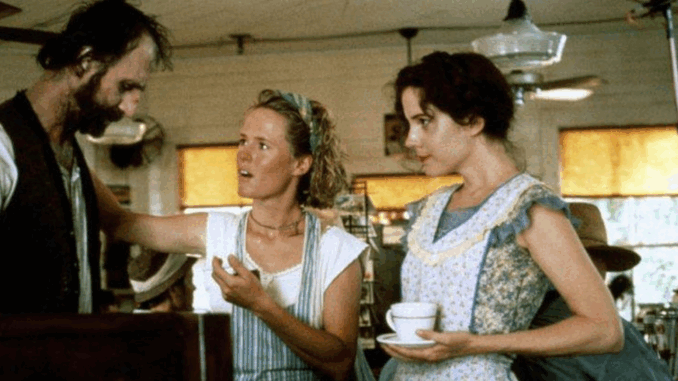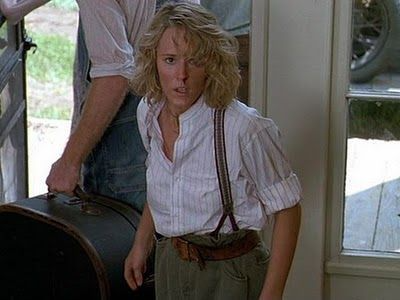
A Story That Transcends Time and Genre
Fried Green Tomatoes is more than just a film about a small-town café and the people who pass through it. At its heart, it is a deeply moving and enduring tribute to female friendship—its strength, resilience, and the quiet revolutions it inspires. Through its interwoven timelines, the film captures how women have supported each other in the face of loss, societal limitations, and personal transformation.
This message resonates even more today, where the search for meaningful human connection remains a timeless pursuit. From Idgie and Ruth’s bond in Whistle Stop, Alabama, to Ninny and Evelyn’s evolving companionship in a nursing home decades later, Fried Green Tomatoes shines a light on how powerful platonic love can be.
Idgie and Ruth: More Than Friendship?
In the heart of the film lies the fierce, unspoken, and emotionally complex relationship between Idgie Threadgoode and Ruth Jamison. The nature of their bond has long been debated. While the film softens their intimacy compared to Fannie Flagg’s original novel, it leaves strong cues to their romantic connection. What remains unquestionable, however, is the intensity of their loyalty.
From the moment Idgie fights for Ruth against her abusive husband to the way they raise Buddy Jr. together, the strength of their companionship breaks barriers. They defy the societal expectations of their time—two women living and working side by side, raising a child, and running a business in the conservative South of the 1930s.
Their friendship becomes a quiet revolution, modeling a form of chosen family that challenges traditional norms without ever having to explain itself.
Evelyn and Ninny: Growth Through Connection

In contrast to the rugged, almost mythic tale of Idgie and Ruth, the present-day timeline follows the soft, transformative friendship between Evelyn Couch, a timid and neglected housewife, and Ninny Threadgoode, the spirited widow with stories to tell.
Their meetings in the Rose Hills nursing home become a sanctuary for Evelyn—a place where she is heard, validated, and empowered. Ninny’s storytelling not only introduces her to the world of Whistle Stop, but helps Evelyn find herself. She begins to take charge of her life, confront her fears, and stand up for her own happiness.
Their bond is one of intergenerational healing. Ninny may be in the twilight of her life, but she lights a fire in Evelyn that had long been extinguished.
The Quiet Heroism of Women
Fried Green Tomatoes is filled with moments of quiet heroism—from Ruth’s decision to leave her abusive marriage to Sipsey’s daring act of justice in the film’s most morally complex moment. These women are not warriors in the traditional sense, but they fight battles all the same—against oppression, against judgment, and sometimes against time itself.
The film does not rely on grand gestures or dramatic declarations. It moves gently, with warmth and wisdom. It celebrates everyday courage—the kind women often display without recognition.
The friendships portrayed in the film are not flawless or overly idealized. They are complicated, full of sacrifice, and at times, marked by pain. But that’s what makes them real.
A Message That Still Resonates Today
In a world increasingly defined by digital connections and performative relationships, Fried Green Tomatoes offers something radically simple: the idea that true friendship is found in empathy, loyalty, and listening. The film reminds us that there is strength in vulnerability and that sometimes, the people who change our lives the most aren’t the ones who arrive with fanfare—but the ones who sit beside us, tell us stories, and stay.
Final Thoughts
Fried Green Tomatoes remains a touchstone in cinema for how it portrays female friendship—not as secondary to romance, not as comedic relief, but as a central, life-affirming force. Whether it’s the fierce bond between Idgie and Ruth, or the gentle unfolding of trust between Evelyn and Ninny, the film teaches us that friendship is a powerful form of love.
It’s not just a story set in the past. It’s a blueprint for the present—and a reminder that the people who walk with us through life’s hardest chapters are often the ones who make it all worthwhile.
